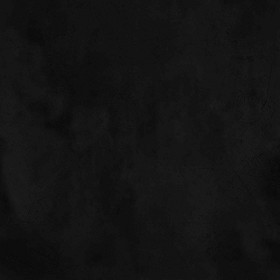There's a good bit of chatter out there, you know, about the famous bear who reminds us to prevent wildfires, and sometimes, too it's almost a little confusing, people wonder about his name, or perhaps, like your, the spelling of it, and how it connects to other well-known figures with a similar sound. It’s a common thing, really, to come across the name "Smokey" and then also the word "smoky," and to wonder if they're the same, or maybe just how they are different from each other. This can be a bit of a head-scratcher for many folks, as a matter of fact, especially when you consider how often these words pop up in everyday talk or in things we read.
It turns out, there's a simple, yet rather important, distinction between "Smokey" with an 'e' and "smoky" without one, and this difference is pretty key for getting your message across clearly. We see it in all sorts of places, from describing a delicious barbecue flavor to talking about famous characters or even people. So, in some respects, figuring out which one to use is actually a useful bit of language know-how.
This quick look will help clear things up, giving you a better handle on when to use each word, especially when thinking about that beloved fire-prevention icon and other notable personalities. We’ll cover the ins and outs, so you can feel more confident about your word choices, which is, you know, pretty helpful for anyone who writes or just likes to be precise.
- Openai Chatgpt Plus Availability Iran
- Dylan Dreyers Personal Life Updates
- Openai Chatgpt Plus Purchase Iran
- Teach Me First Manhwa
- Chatgpt Plus Availability Iran Openai
Table of Contents
- William "Smokey" Robinson Jr. - A Look at the Man Behind a Famous Name
- Is "Smokey" the Bear's Name Actually Spelled That Way?
- Why Do We See "Smokey the Bear voice actor" Spelled Differently?
- Getting Clear on "Smokey" Versus "Smoky"
- How Can We Remember the Right Way to Use "Smokey" or "Smoky"?
- Exploring Examples of "Smoky" in Action
- What About "Smokey the Bear voice actor" and Other Proper Nouns?
- The Story of "Smokey" as a Proper Name
William "Smokey" Robinson Jr. - A Look at the Man Behind a Famous Name
When we talk about famous people named "Smokey," one person who often comes to mind is William "Smokey" Robinson Jr. He's a really well-known figure in the world of music, someone who has had a big impact on how we hear and create sounds. Born on February 19, 1940, he's an American R&B and soul singer, a person who writes songs, a record producer, and he even used to be a record company executive. He was, as a matter of fact, the one who started a very important group and was its main performer.
His work has shaped a lot of what we listen to, and his name, "Smokey," is pretty much a household word for music lovers. He's an artist who has given us so much, and his presence in music is still felt today. His contributions are quite significant, actually, making him a true legend in his field. So, it's pretty interesting how his unique name stands out, just like the beloved bear.
It's interesting to think about how some names just stick with us, and "Smokey" for Mr. Robinson is definitely one of those. He's had a long and very successful career, building a reputation that's pretty much unmatched. His life in music is a testament to talent and hard work, and that's something to really appreciate, you know.
- Gloria Torres Only Fans
- Asx1comx
- Carly Jane Topless
- Teach Me First Comic Honey
- Onlyfans Gloria Torres Of
Personal Details and Bio Data
| Full Name | William "Smokey" Robinson Jr. |
| Born | February 19, 1940 |
| Occupation | Singer, Songwriter, Record Producer, Former Record Executive |
| Known For | Founder and Frontman of a Notable Music Group |
| Nationality | American |
Is "Smokey" the Bear's Name Actually Spelled That Way?
When we think about the famous bear who teaches us about fire safety, his name is indeed "Smokey" with an 'e'. This is something that a lot of people might wonder about, especially since there's another word that sounds very much like it but is spelled differently. The bear, an advertising mascot for the U.S. Forest Service, is a very recognizable figure across America. His name, you know, has become a symbol for a really important message about preventing forest fires.
The spelling of his name, "Smokey," is important because it tells us that it's a specific name, like a person's name, rather than a word describing something. It's a proper noun, which means it's the unique title given to this particular character. This is pretty much why you'll always see his name written with that extra 'e' at the end. It's just how it is, basically, and it helps distinguish him.
So, yes, the bear's name is "Smokey," and it's always spelled that way. It’s a part of his identity, and it’s been that way for a very long time. This particular spelling makes him stand out, and it’s something that has been consistent through all his appearances, from posters to public service announcements. It's just a little detail that really matters for this cultural icon, you know.
Why Do We See "Smokey the Bear voice actor" Spelled Differently?
It can be a little confusing when you see "smoky" without the 'e' floating around, especially when you're thinking about "Smokey the Bear voice actor" and his name. The reason for this difference comes down to how words are used in our language. "Smokey" with the 'e' is a proper name, something unique given to a person or a character, like our bear or the singer, William Robinson. It's like calling someone "John" or "Sarah" – it's their specific title.
On the other hand, "smoky" without the 'e' is a descriptive word. It's an adjective, which means it tells us something about a thing. It's used to describe something that is full of smoke or that smells like smoke. For example, you might talk about a "smoky flavor" in food, or "smoky mountains" that have a hazy appearance. So, that's why you see the spelling vary; it all depends on what you're trying to communicate, really.
Until fairly recently, "Smokey" with the 'e' was, in some ways, an accepted way to spell the descriptive word "smoky." But over time, the preferred and more commonly accepted spelling for the adjective became "smoky" without the 'e' in both American and British English. This shift means that while the bear keeps his unique name, the general word for something resembling smoke has a different, more widely recognized spelling. It’s a subtle thing, but it’s there, you know.
Getting Clear on "Smokey" Versus "Smoky"
Let's get down to the basics of these two words, because it's pretty important to use them correctly. "Smoky," spelled without the 'e', is the word you should use when you want to describe something that has a lot of smoke, or something that smells or tastes like smoke. It's an adjective, which is a word that tells us more about a noun. For instance, if you're talking about a fire that's giving off a lot of fumes, you'd say it's a "smoky fire." It’s just how we describe things that are, you know, filled with that kind of air.
Now, "Smokey" with the 'e' is something else entirely. This version is a proper noun, which means it's a specific name given to someone or something. It's like saying "London" or "Mount Everest." It's not a word you use to describe a quality; it's a name. The most famous example, of course, is "Smokey Bear," the well-known advertising mascot for fire prevention. And then there's the incredibly talented musician, William "Smokey" Robinson Jr., whose name also uses this spelling. So, it's pretty clear that these two words serve very different purposes, basically.
The core message here is that if you're describing something that has the characteristics of smoke, go with "smoky." If you're talking about a specific individual or a named character, then "Smokey" is the one you need. It's a simple rule, but it really helps keep your writing clear and precise. This distinction is, in fact, quite helpful for anyone trying to communicate well.
How Can We Remember the Right Way to Use "Smokey" or "Smoky"?
To help you keep these two words straight, there's a little trick that can make it easier to remember. Think about the word "smoke" itself. When you add the 'y' to "smoke," you get "smoky," which describes something that has smoke. This is the common adjective. It's a pretty straightforward way to remember it, you know, just add the 'y' to the root word.
For "Smokey" with the 'e', remember that the 'e' is like a special marker that says, "Hey, this is a name!" So, if you're thinking about "Smokey the Bear voice actor" or the famous singer, that extra 'e' is your clue that you're dealing with a proper noun, a unique identifier. It's a bit like how some people add an 'e' to the end of their name to make it unique, even if it's pronounced the same. This little mnemonic, you know, can really help you decide which spelling is the right one to pick.
So, to sum it up simply: if it's a general description of something related to smoke, think "smoky" like "smoke" plus "y." If it's a specific name, like the bear or the singer, then that extra 'e' in "Smokey" is your signal. This distinction is pretty helpful for making sure your writing is accurate and easy for others to follow, and that's something we all want, right?
Exploring Examples of "Smoky" in Action
Let's look at some examples to really nail down how "smoky" (without the 'e') gets used. When you're talking about food, for instance, you might describe a "smoky barbecue sauce" because it has that distinct flavor that comes from cooking over wood. Or, perhaps, you're talking about a "smoky single malt whiskey" that has a particular taste profile. These are all about the quality of something, that, is that, related to smoke.
Beyond food, you could talk about a "smoky room" if it's filled with fumes from a fire or cigarettes. Or consider the "Smoky Mountains," which are known for their hazy, blue appearance that looks a bit like smoke. In all these cases, "smoky" is acting as a descriptive word, telling us something about the noun it's connected to. It's a very versatile word for conveying a certain kind of atmosphere or characteristic, you know.
You could also describe a "smoky smell" coming from a campfire, or the "smoky air" after a distant wildfire. An artist might use "smoky colors" to create a certain mood in a painting, using muted, hazy tones. These examples really show how "smoky" helps us paint a picture with words, describing things that are either literally full of smoke or just have that kind of appearance or scent. It's pretty cool how one little word can do so much, actually.
What About "Smokey the Bear voice actor" and Other Proper Nouns?
When we consider "Smokey the Bear voice actor" and other specific names, it's really important to remember that "Smokey" with the 'e' is always reserved for proper nouns. It's the name of a specific character, a unique individual, or a particular place. For instance, when we talk about the famous bear who tells us "Only YOU can prevent wildfires," his name is "Smokey Bear," always with that 'e'. This is because he is a specific, named entity, a cultural icon, you know.
Similarly, as we discussed, the legendary R&B and soul singer is William "Smokey" Robinson Jr. His stage name, "Smokey," also includes that 'e'. This is because it's his given or chosen name, something that identifies him uniquely. You wouldn't say "smoky Robinson" because that would be like describing him as being full of smoke, which doesn't make any sense in this context. So, the 'e' is a crucial part of his identity, basically.
Another example, though less common today, is when "Smokey" might have been used as a nickname for a state highway patrol officer. The text mentions "An officer or officers of a state highway patrol" being called "Smokey." In this case, it's used as a specific, informal name or title for that person. So, you can see how "Smokey" with the 'e' always points to something particular and named, rather than a general quality. It's a very important distinction to keep in mind, really, for clear communication.
The Story of "Smokey" as a Proper Name
The word "Smokey" with the 'e' has a really interesting story, especially since it's used for such well-known figures. Its most famous association is, of course, with Smokey Bear, who has been an advertising mascot for the U.S. Forest Service for a very long time. This bear, you know, has become a symbol recognized by almost everyone in America, helping to spread a vital message about preventing forest fires. His name is a key part of his brand, and it's always spelled with that extra 'e'.
This spelling, "Smokey," sets him apart as a distinct character. It’s not just any bear; it’s *the* Smokey Bear. And, as we know, this spelling is also used for William "Smokey" Robinson Jr., a truly influential person in music. For both the bear and the musician, the "ey" ending signals that we're talking about a proper noun, a specific name that identifies them uniquely. It’s a bit like how certain names have unique spellings to make them stand out, in a way.
It's worth noting that while "Smokey" is exclusively a proper noun today, it wasn't always so clear-cut. Until fairly recently, "Smokey" was sometimes accepted as a spelling for the adjective "smoky." However, over time, the language has settled, and "smoky" (without the 'e') became the standard for describing something resembling smoke. This means that the 'e' in "Smokey" now almost exclusively points to a name, making its usage very specific and, you know, pretty easy to understand once you know the rule.
This distinction is also evident in things like annual parades. The text mentions an "Annual parade coming to westerly, charlestown by ryan blessing sun staff writer jul 9, 2025 updated 3 mins ago 0 buy now." If this parade, for example, were to feature Smokey Bear, his name would be spelled with the 'e', because it's his proper title. It's about consistency and respecting the established identity of these figures. So, it's pretty clear that the 'e' is a very important part of the name, almost like a little flag saying, "This is a name, not a description."
The word 'smokey' is typically used as an adjective to describe something that has a lot of smoke or smoky qualities. It can be used to describe a smell, like a smoky barbeque, or a physical characteristic. This is where the confusion can arise, because the proper noun "Smokey" sounds exactly the same. However, the context always tells us which one is being used. When you're talking about the smell of a barbecue, you're using the descriptive word, not the bear's name. It's a simple thing, but it's important for clarity, you know.
Among "smokey" and "smoky," "smoky" is the more commonly accepted spelling of the word in both American English and British English when it's used as an adjective. However, "smokey" (with an extra 'e') can, of course, be found as a proper name. This reinforces the idea that the 'e' makes it a name, while without it, it's a description. It's a pretty clear division once you get the hang of it, and it really helps in writing precisely.
In short, whether you're talking about the beloved fire-prevention mascot, a legendary musician, or just something that smells like a campfire, knowing the difference between "Smokey" and "smoky" is a useful bit of language know-how. It helps us communicate more clearly and accurately, making sure our words say exactly what we mean. It's a small detail, but it really does make a difference in how well we understand each other.
- Yessica Kumala
- Where Is Pokimane From
- Toon Teach Me First
- Openai Chatgpt Plus Availability Iran
- Best Time To Visit Pathivara Temple



